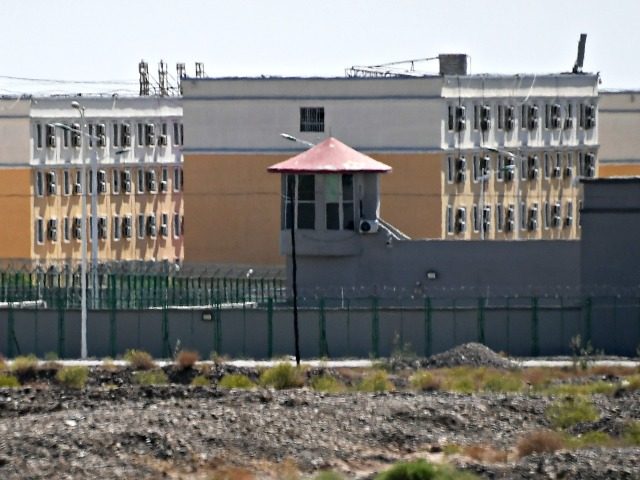China’s state-run Global Times on Monday pushed back against an international campaign to find Uyghur Muslims who went missing after China began herding them into re-education camps, claiming that the missing Uyghurs are actually “living normally” after “graduating” from the camps Beijing likes to describe as “vocational education and training centers.”
The international campaign China is attempting to refute uses a Twitter hashtag called #StillNoInfo. It got underway after Chinese officials began claiming the millions of Uyghurs imprisoned in Xinjiang province’s re-education camps were actually happy students graduating from vocational training programs and returning to productive lives.
#StillNoInfo activists began collecting stories of Uyghurs who vanished into the camps and were never heard from again, an effort that continues to this day. Some of the posts come from angry relatives of people spotlighted in China’s propaganda campaigns, stating for the record that their loved ones are still missing. The campaign has expanded to include other reports of Chinese oppression against people of many religious faiths.
The Global Times claimed on Monday that its reporters found all the missing Uyghurs:
After digging into the online information released by some individuals and organizations on the alleged missing Uyghurs, confirming from the authorities in Xinjiang and visiting some of the “missing people” in different places in Xinjiang, the Global Times (GT) reporters found that they are living normal lives.
The allegedly “missing” people met by the GT reporters slammed those who have taken advantage of their identities and sought to interfere with China’s internal affairs, and told those who posted about them to stop disturbing their peaceful life.
Based on interviews with “several people” who “have been home for months and are living a regular life on the right path after graduating from the training center,” the Global Times concluded the entire campaign to find missing Uyghurs has been debunked. Then it admitted a few of them might still be missing, but they deserve to be missing because they are dangerous enemies of the State.
The article went on to accuse “separatist groups” of launching the #StillNoInfo campaign to “smear China’s Xinjiang policies” with the assistance of international human rights organizations:
For example, Rushan Abbas, leader of the so-called Campaign for Uyghurs, and Halmurat Harri, who started the “MeTooUyghur” activity, are found to be members of “East Turkistan” separatist groups. They first stole some Uyghurs’ photos and information, claimed these people to be “missing” relatives in Xinjiang, spread rumors on overseas media and had interactions with some certain media. Some overseas nongovernmental organizations, especially the Human Rights Watch, are also taking an active role in promoting these rumors.
A family in Xinjiang was quoted denouncing a black-sheep brother who posted under the #StillNoInfo hashtag and claimed they were missing, when they are supposedly living happy and productive lives:
However, for this family, Memet Tohti Atawulla, the elder brother, is an unspeakable scar. The Global Times learned that he was suspected of having joined the “East Turkistan” separatist group and has been attacking China’s Xinjiang policy. Recently, the elder brother claimed his brother Ruzi Memet was missing.
On December 10, Memet Tohti posted on Twitter with the hashtag “StillNoInfo,” claiming that his mother and brothers are suffering in “Chinese camps.”
Ruzi Memet could not hide his sadness talking about his elder brother. “Brother, you said you went abroad to study, but now you are with the separatist force and attack our [country’s] policy,” he said.
“Our life is getting better and we have a new house. I hope you stop colluding with the separatists. Our father is getting old and we all miss you a lot,” he said, choking with sobs.
Human Rights Watch in November reported on leaked Chinese government documents that revealed the full scope of the oppression in Xinjiang province, including instructions to officials on how to tell Uyghur children their parents were mentally ill and needed to be incarcerated at the camps for their own good, while assuring the outside world the camps were merely schools the Uyghurs attended voluntarily. The Chinese government did not attempt to deny the authenticity of the documents.

COMMENTS
Please let us know if you're having issues with commenting.